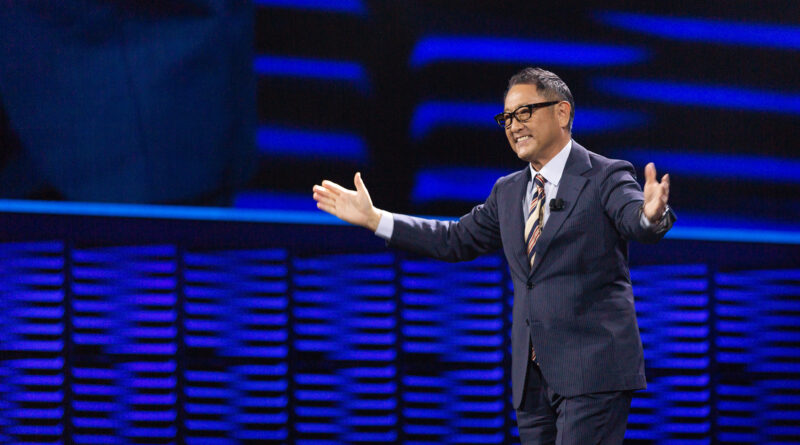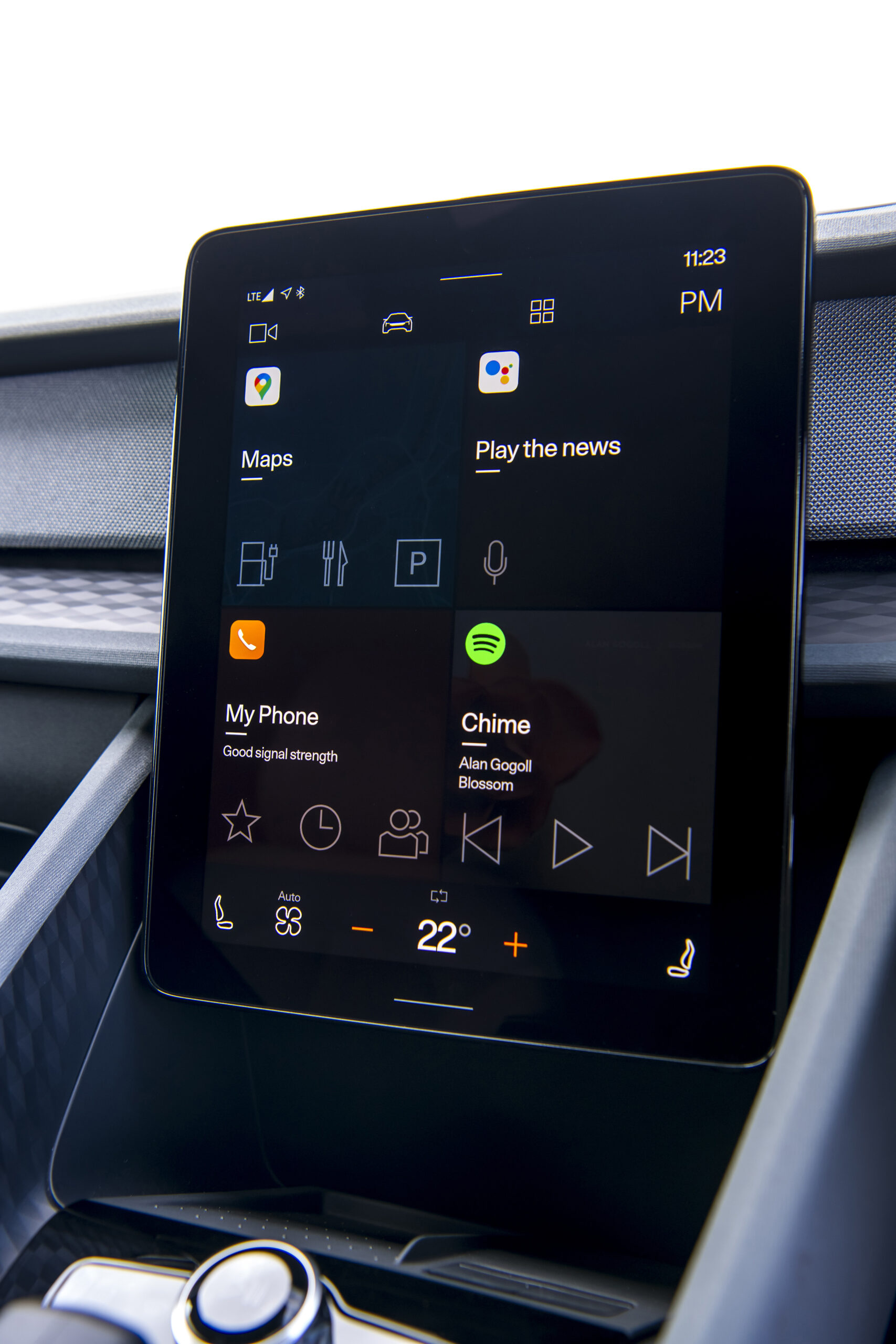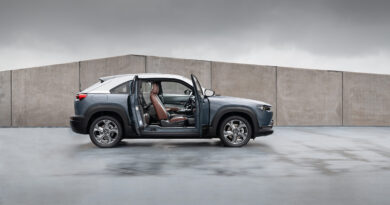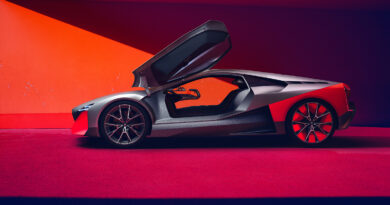Toyota chief Akio Toyoda is wrong about EVs…
Akio Toyoda knows a lot about the car business. So when the president of Toyota was openly critical of EVs in mid-December it was very big news.
The headline in the influential Wall Street Journal was typical: “Toyota’s Chief Says Electric Vehicles Are Overhyped”. Makes it sounds like one of the most powerful executives in the global auto industry has some serious doubts about electromobility, doesn’t it?
So let’s take a closer look at what Toyoda actually said…
His remarks came at end-of-year news conference of JAMA, the Japan Automobile Manufacturers Association. Late in 2020 credible Japanese news organisations had begun to report the government there was planning to announce a ban on the sale of purely petrol-powered cars from 2035. Toyoda is JAMA chairman, and what he said applied specifically to Japan, not the whole world.
As Toyoda pointed out, Japan currently generates most of its electricity in coal-fired or gas-burning power plants. “The more EVs we build, the worse carbon dioxide gets,” he reportedly added.
What Toyoda did here, unintentionally, was highlight the obvious fact that EVs don’t make environmental sense unless they’re powered by clean energy. There are two points to make…
Firstly, there are many places in the world where driving an EV will definitely deliver big reductions in CO2 emissions right now. From Norway to New Zealand, there are countries where renewables already supply the bulk of the power going into their national grids (in Norway it’s above 95 percent, in New Zealand more than 80 percent). Tasmania recently announced its electricity is now created entirely from renewables.
Secondly, coal-fired power stations are not forever. They can be replaced by wind farms, solar arrays, geothermal installations, hydro dams, and other renewable technologies. This transition is already happening in many places, and what it means is that the CO2 emissions of an EV bought today will fall as the grid is greened.
The same cannot be said of ICE-powered cars or, for that matter, hybrids. Their emissions of CO2 will not change much one way or the other through their lifetimes. Burning a litre of petrol will always produce about 2.3kg of CO2. This is an unalterable fact of chemistry.
Toyoda also observed that it will be very costly to upgrade Japan’s electricity grid to cope with a national vehicle fleet that’s 100 percent EVs. There’s no reason to doubt that he’s right, but the switch to electromobility won’t happen overnight. It will take decades, so the investment can be spread out over a lengthy timeframe.
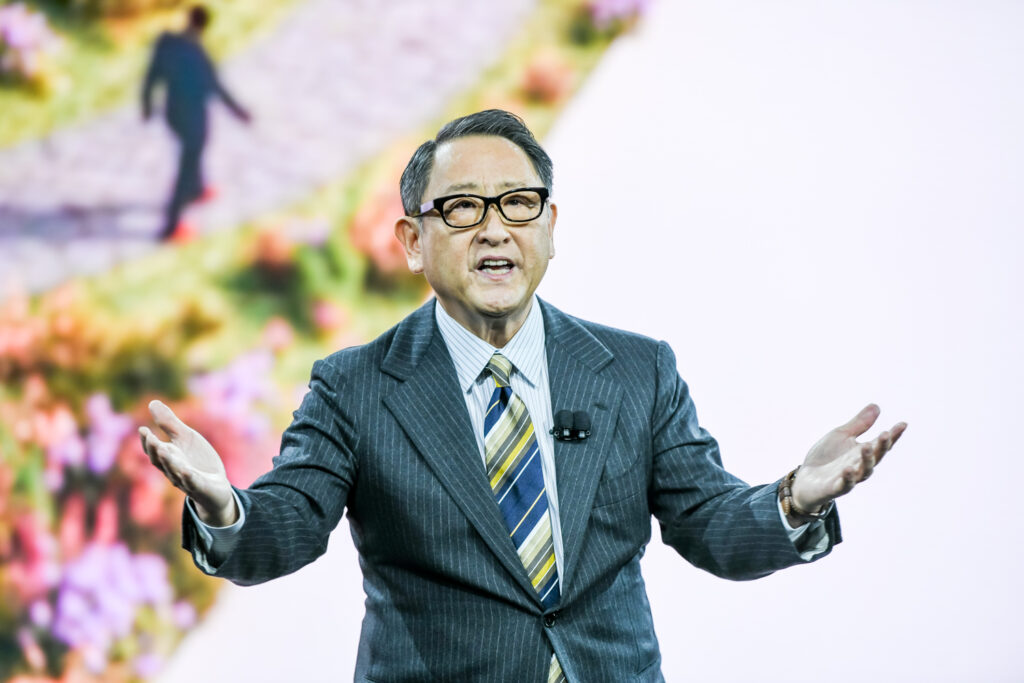
What’s more, if the world is to have a serious stab at halting disastrous climate change, grids everywhere will need to be upgraded. New renewable energy sources will need to be connected, and new technologies like V2G (vehicle to grid) incorporated to enable the load balancing that prevents power outages. Put simply, spending big money on the grid is an unavoidable part of the price that has to be paid if we’re determined to avoid ruining our planet.
Toyoda expressed concern that if the Japanese government forced the pace of the transition to EVs it could be disastrous for the nation’s car industry and might push the price of cars up. He said he feared new regulations might make cars a “flower on a high summit”, apparently a Japanese metaphor for something beyond the reach of normal people.
The short answer to both these fears is just one word … Tesla.
The American company has shown the world that manufacturing EVs can be a money-making business, and is now preparing to prove EVs can also be affordable.
Tesla had a very big year in 2020, overtaking Toyota to become the world’s most valuable car company by market capitalisation and, at last, reporting regular profits (Akio Toyoda has previously taken a swipe at Tesla). Its Model 3 became the best-selling EV the world has ever seen, and plans were announced for a smaller and less costly Tesla Model 2 to join the line-up sometime in the future. It will probably be manufactured in Tesla’s new factory in Germany.
Other mainstream car makers believe they can compete with Tesla, including Toyota’s great rival Volkswagen. The German giant – VW Group is currently the world’s biggest car maker – launched the ID.3 hatchback and ID.4 compact SUV in Europe in 2020. These are both mass market EVs. They will be manufactured by the hundreds of thousands and will be relatively affordable compared to VW’s ICE-powered equivalents.
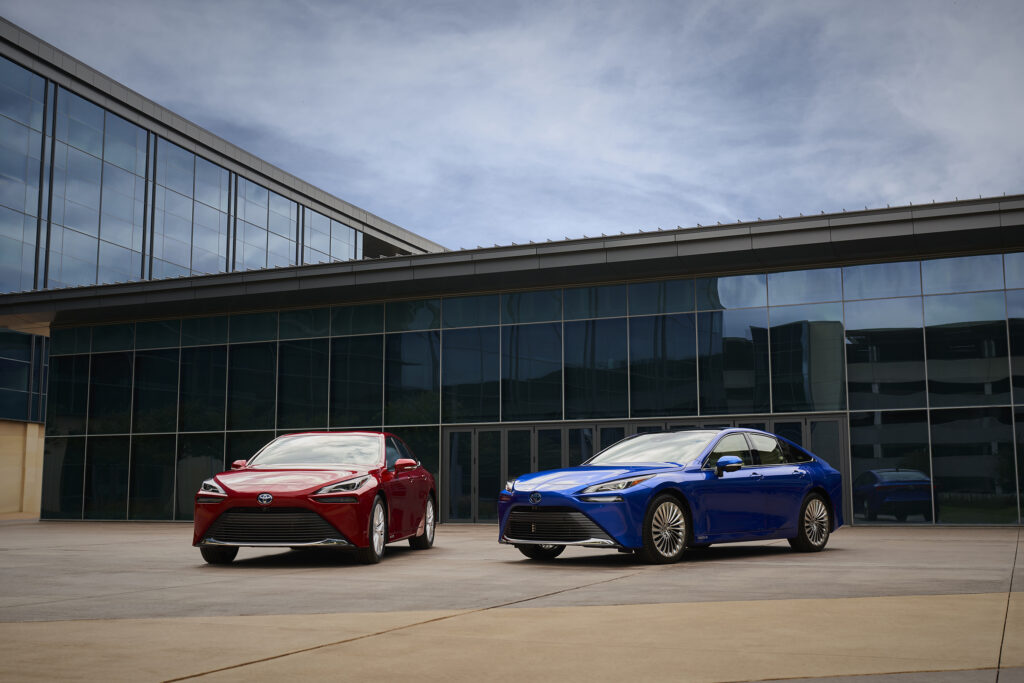
Even Toyota has revealed plans to produce an EV to join the new Mirai hydrogen fuel-cell EV in its line-up. More than a single model, the company appears to be planning a new family of Toyota BZ models. And its Lexus luxury brand this year added an EV version to its UX SUV range, set to become the first Lexus EV sold in Australia.
It’s hard to understand why Akio Toyoda should appear so negative about EVs. After all, Toyota was the company that more than two decades ago pioneered the development and popularisation of petrol-electric hybrids. That took conviction, courage and commitment, and there were many who questioned the move.
Surely Toyota could do it all over again with EVs, if only it really wanted to…

